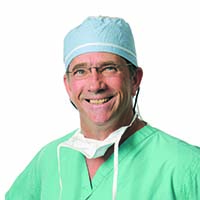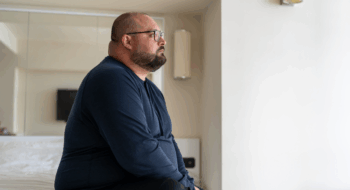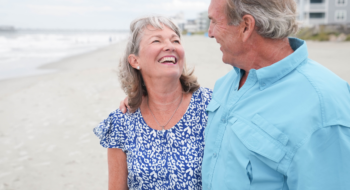“You will be cured!”
Those four words from Dr. Craig Brackett are still prominent in Rita Boggs’ memory as she reflects on her journey through breast cancer.
It started with a routine mammogram, but this time, the results revealed a small mass in one breast. Within the week, the mass was biopsied and came back positive for breast cancer.
“She had an early-stage breast cancer that was certainly treatable and curable,” says Dr. Brackett, Boggs’ breast cancer surgeon at Tidelands Health. “Rita was a candidate for surgery up front, which we did because it helps define the pathology.”
As it turned out, even though it was Stage I and less than two centimeters and node-negative, meaning the cancer had not spread to the lymph nodes, her cancer was classified as high risk.
“We moved from there – two or three weeks later, I was having surgery,” Boggs says. “That was tremendous, I’ll never forget that.”
Following national guidelines, Boggs’ care team developed a comprehensive plan. After surgery, she received four cycles of chemotherapy, followed by radiation therapy and then began endocrine therapy, an anti-estrogen medication designed to reduce the chance of the cancer coming back.

“Cancer is a journey that nobody expects,” Boggs says. “But the journey really begins during the healing process.”
For Boggs, that process was made easier by the speed and compassion of her care team and the confidence from Dr. Brackett, who has been treating breast cancer for more than 30 years at Tidelands Health.
“He looked me in the eyes and said, ‘You will be cured,’” Boggs says. “It was so powerful, and I had such conviction that this was going to be OK.”
Since 2018, prognostic staging at Tidelands Health has allowed physicians to assess multiple factors, including tumor size, grade, hormone receptor status and more. This helps physicians predict long-term outcomes, including survival rates, more accurately.
For Boggs, the most powerful part of her experience wasn’t the medicine; it was the humanity behind the care she received.
“They’re more than just doctors,” she says. “These are caregivers. They care for the human being, and I think that’s something that in today’s world has to be treasured.”

Dr. Craig Brackett
Breast Surgeon, Tidelands Health Breast Center
Call to Schedule
Bio
Dr. Craig Brackett is a breast surgeon at Tidelands Health Breast Center.
Learn MoreMeet the Expert
Dr. Craig Brackett
Call to Schedule
Dr. Craig Brackett is a breast surgeon at Tidelands Health Breast Center.




